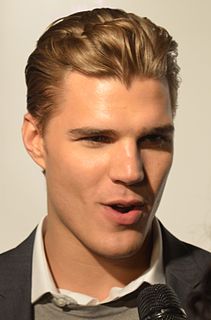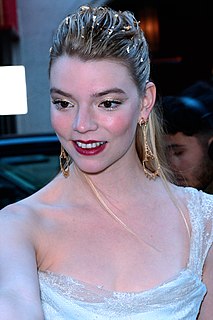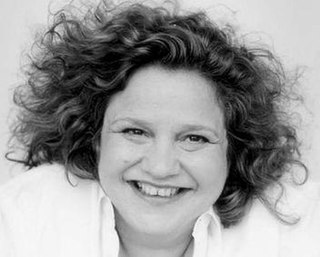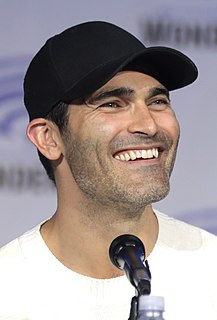A Quote by Dacia Maraini
Characters simply come and find me. They sit down, I offer them a coffee. They tell me their story and then they almost always leave. When a character, after drinking some coffee and briefly telling her story, wants dinner and then a place to sleep and then breakfast and so on, for me the time has come to write the novel.
Related Quotes
One of my standard - and fairly true - responses to the question as to how story ideas come to me is that story ideas only come to me for short stories. With longer fiction, it is a character (or characters) coming to visit, and I am then obliged to collaborate with him/her/it/them in creating the story.
I very much write from characters. Those people start speaking, and then I have them in the house with me and I live with them. Then at some point, it's time to get them out of the house. You can only live with someone like Dr. Georgeous Teitelbaum from THE SISTERS ROSENSWEIG for so long, and then it's time for her to go. But it is very like having the company of these people and trying to craft them in some way into a story.
Curiously, the balance seems to come when writing is woven into every aspect of my life, like eating or exercising - one flows constantly into the next: I'll wake up and have coffee, read the news, then write a letter or two (always in longhand), then go teach, and after teaching write a bit in a journal - dreams, what I had for breakfast and lunch and why I had it, what's on the iPod, sexual habits, etc. - then read a bit, then work on a real bit of writing...you get the idea.
You have to do three things really well to make a successful film. You have to tell a compelling story that has a story that is unpredictable, that keeps people on the edge of their seat where they can't wait to see what happens next. You then populate that story with really memorable and appealing characters. And then, you put that story and those characters in a believable world, not realistic but believable for the story that you're telling.
If you ask me, the place that a story happens is as equal character. It's almost like an ecological viewpoint: These people are living in this piece of land, and in this piece of land in this time this is possible. For me, I almost think location first. It's time first - what year is it - then where are we, and then who is in it.
I always set out to tell a good story, to create a character that young people can relate to, place them in a situation that will be interesting, intriguing, eventually suspenseful. But what I find is that after I do that, then there are themes that emerge, which teachers can then use to provoke discussion and debate.
Well, I don't ever leave out details, in that I don't come up with information or description which I don't then use. I only ever come up with what seems to me absolutely essential to make the story work. I'm not usually an overwriter. As I revise, it's usually a matter of adding in as much vivid details as seem necessary to make the story come clear without slowing down the momentum of the story.
If you get the characters right you've done sometimes nearly half the work. I sometimes find I get the characters right then the characters will often help me write the book - not what they look like that's not very important - what people look like is not about their character. You have to describe the shape they leave in the world, how they react to things, what effect they have on people and you do that by telling their story.
I pretty much drink a cup of coffee, write in my journal for a while, and then sit at a computer in my office and torture the keys. My one saving grace as a writer is that, if I'm having trouble with the novel I'm writing, I write something else, a poem or a short story. I try to avoid writer's block by always writing something.
I love sitting down with my friends at dinner and actually telling them a story, as opposed to going, "Hey, did you see that thing I posted on Instagram?" For me, I would so much rather sit there and actually share a story with somebody and have somebody tell me about their trip, or things like that. I don't need to see it.
I think that when I'm telling a story, I'm doing the best I can to tell the story as fully as I can, and if there are various fractures that happen in the story, then that's just the very thing that the story is as opposed to my looking for avenues of difference in one story. They just really do exist. For me, anyway.






































